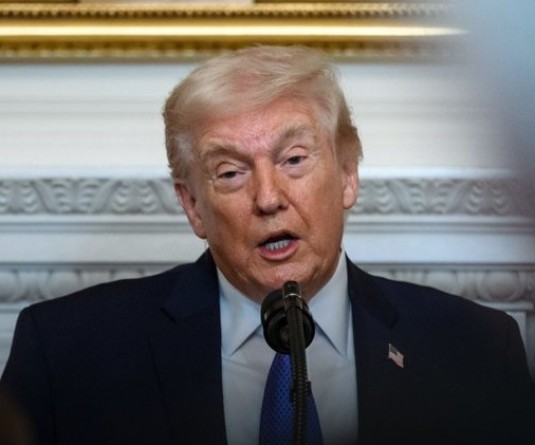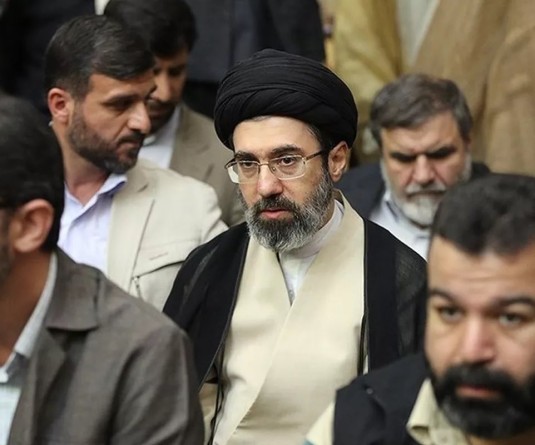
BEIJING, June 9 (Reuters): China's Communist Party sees no reason why it cannot stay in power indefinitely, having made the nation into the envy of the world with its economic success, one of the Party's top official historians said on Thursday.
Li Zhongjie, a deputy head of the Party's History Research Center, made it clear that China will use the impending 90th anniversary of the Party's founding as a time for rousing pride, rather than reflection on a history that has spanned war, revolution, mass famine and deadly purges. Under the Party's rule, China had made leapfrog developments, Li told a news conference, and he said it was foolish to expect any party to want to give up power.
"Over the last 90 years, especially the last 30 years of reform and opening up, we have made major achievements. This is something the world basically recognizes," Li said, ahead of the Party's anniversary of its 1921 founding on July 1. "I could ask, 'Mr. Obama, does your Democratic Party still want to contest the election'? Do you still want to stay in power? They would think that a weird question. Of course our Party hopes to remain in power. "...Objectively, the issue is rather: how is your rule, and how effective is it? Is it welcomed by the people? Are you running the country well, or into the ground? The Communist Party has built China to what it is today. Many countries in the world are extremely envious. So why can't we carry on? It's a very simple question."
His impassioned answer drew applause from the audience, made up mainly of state media and Chinese academics, with a smattering of foreign reporters. While the Party's rule has seen China become the world's second-largest economy, lift millions out of abject poverty and put men in space, critics say it has come at the expense of individual freedoms, with the Party brooking no dissent.
Under the late Mao Zedong, China went through disasters such as the 1958 Great Leap Forward campaign to catapult it to prosperity, but ended in a three-year famine in which an estimated 30 million people starved to death. "Objectively speaking, Comrade Mao made some mistakes later in his life, which created major damage," Li said. "But looking at Mao's whole life, his achievements should be put first, and his mistakes second ... He established 'New China' and socialism's basic system. "We should 'seek truth from the facts' in analyzing and researching the lessons from Mao's mistakes," he added. "What Mao hoped to do, we should ensure we do even better."
Li Zhongjie, a deputy head of the Party's History Research Center, made it clear that China will use the impending 90th anniversary of the Party's founding as a time for rousing pride, rather than reflection on a history that has spanned war, revolution, mass famine and deadly purges. Under the Party's rule, China had made leapfrog developments, Li told a news conference, and he said it was foolish to expect any party to want to give up power.
"Over the last 90 years, especially the last 30 years of reform and opening up, we have made major achievements. This is something the world basically recognizes," Li said, ahead of the Party's anniversary of its 1921 founding on July 1. "I could ask, 'Mr. Obama, does your Democratic Party still want to contest the election'? Do you still want to stay in power? They would think that a weird question. Of course our Party hopes to remain in power. "...Objectively, the issue is rather: how is your rule, and how effective is it? Is it welcomed by the people? Are you running the country well, or into the ground? The Communist Party has built China to what it is today. Many countries in the world are extremely envious. So why can't we carry on? It's a very simple question."
His impassioned answer drew applause from the audience, made up mainly of state media and Chinese academics, with a smattering of foreign reporters. While the Party's rule has seen China become the world's second-largest economy, lift millions out of abject poverty and put men in space, critics say it has come at the expense of individual freedoms, with the Party brooking no dissent.
Under the late Mao Zedong, China went through disasters such as the 1958 Great Leap Forward campaign to catapult it to prosperity, but ended in a three-year famine in which an estimated 30 million people starved to death. "Objectively speaking, Comrade Mao made some mistakes later in his life, which created major damage," Li said. "But looking at Mao's whole life, his achievements should be put first, and his mistakes second ... He established 'New China' and socialism's basic system. "We should 'seek truth from the facts' in analyzing and researching the lessons from Mao's mistakes," he added. "What Mao hoped to do, we should ensure we do even better."






